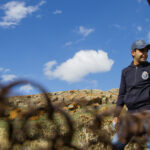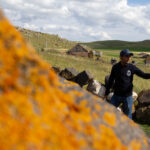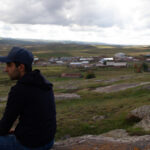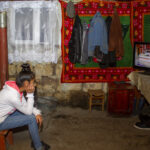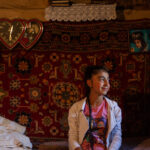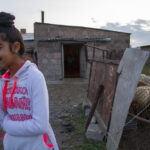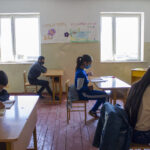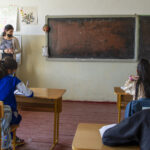
Zhenik, 17, has lived in the Shaveshyan family for around two years, but her father-in-law has never heard her voice. But around these parts, that’s not unusual. Her grandfather-in-law did not hear the voice of his daughter-in-law for more than 40 years of living together. Indeed, it is one of the accepted social practices among the majority of Armenian Yazidis.
The Shaveshyans are one of the 62 Yazidi families in the village of Rya Taza. The village is located in Armenia’s western Aragatsotn Province, and is entirely inhabited by Yazidi people. Here most girls get married at just 15 or 16 years old, and most drop out of school by grade 9.
Yazidis are the largest ethnic minority in Armenia, comprising 1.2% of Armenia’s population of roughly 2.9 million. Most live in villages in the country’s western provinces. Today, though the Yazidi community remains a conservative one, some younger Yazidi women are openly questioning widely held assumptions about gender, marriage, and the role of education in a Yazidi woman’s life.
The new daughter-in-law
Born in 2003, Zhenik was 15 years old when she married Mher, who was 22. Now, she is 17, and Mher is 25. They have not yet registered their marriage. Mher says that he is waiting until his wife will become a legal adult. Then she will also change her surname to that of her husband.
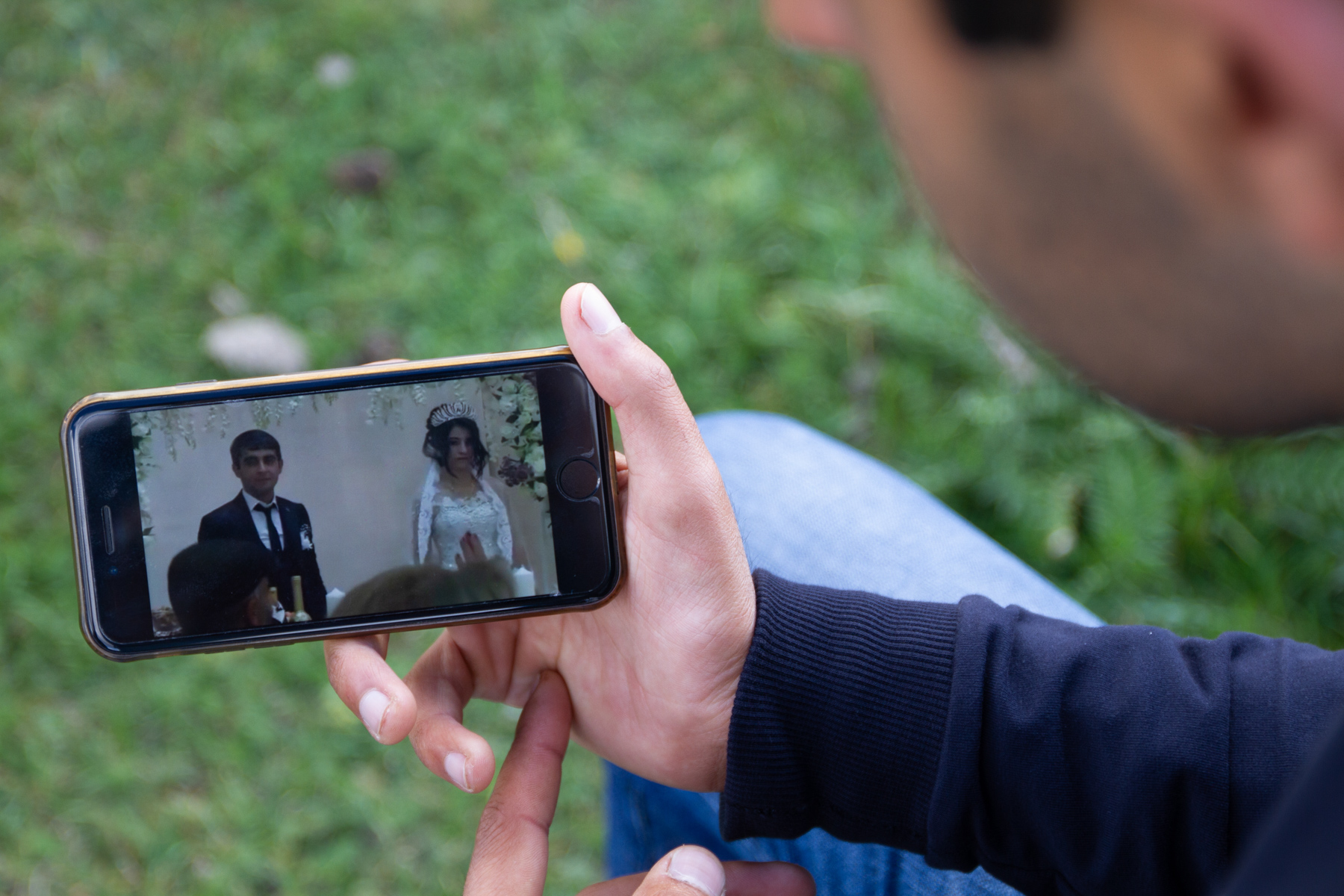
Before they got married, Mher and his family had visited 87 houses to try to find a wife for Mher. Zhenik lived in the 88th house.
As most Yazidi women and girls are married, Zhenik will not appear before the camera. It is also not acceptable for her to social media pages and share photos of herself. The only visual evidence of her married life online is a video recording of her marriage wedding, which her husband shows proudly.
From the age of 20, Mher looked for a bride in all the Yazidi populated areas of Armenia. Sometimes, he, his father, his mother, and his uncle would tour several villages on the same day in search of a suitable young woman.
Mher and his family visited Zhenik’s house 13 times ‘to ask for her hand’; all 13 times, they were rejected by the girl’s father. She was too young, he said. But on the 14th visit, her father finally said, ‘yes’.
The first time Mher’s family visited Zhenik’s home in the village of Jamshlu, Mher was not present.
‘I told them to go and see if the girl was nice; if she was then to call me, and then I would come.’
After the visit, the parents gave a positive assessment of Zhenik and the next day Mher joined them.
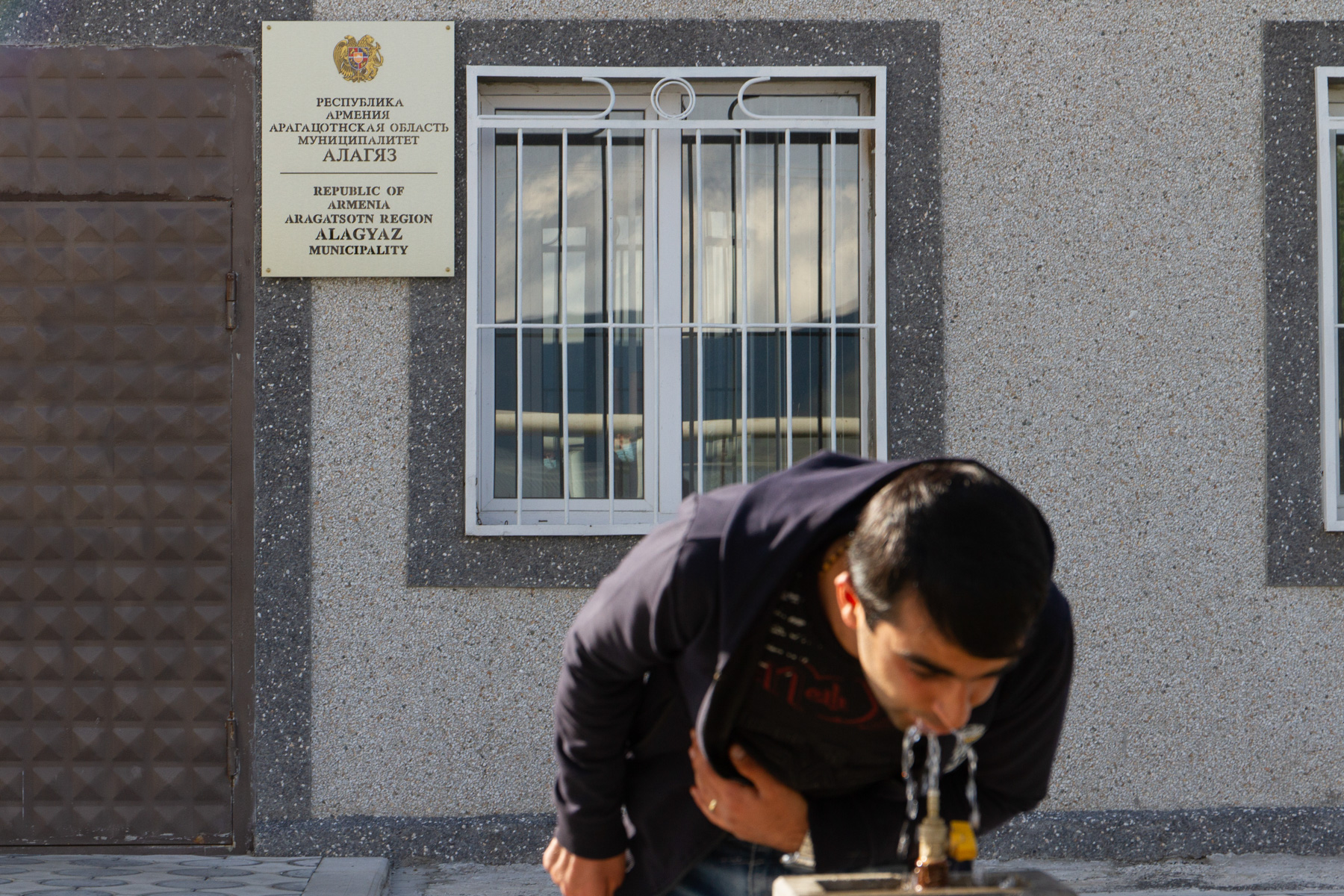
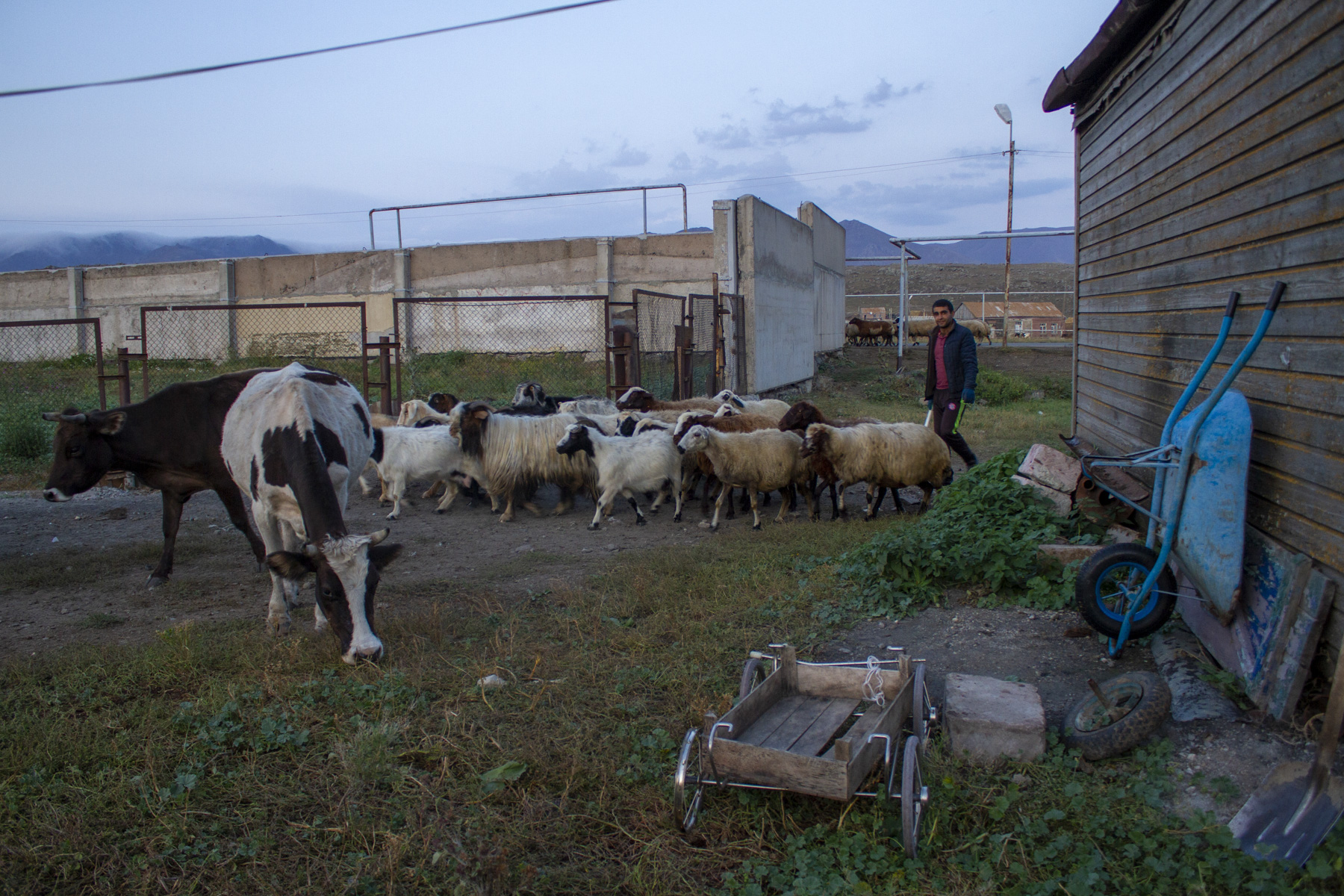
Photo: Hermine Virabian/OC Media.
According to local tradition, when a family comes to see a girl, she has to serve a glass of water — she did. Zhenik brought water for Mher’s uncle. When she entered the room, Mher scanned her from head to toe. His uncle, meanwhile, drank the water slowly, trying to give the boy a chance to see and fall in love with his prospective bride. There would not be a chance for them to build a relationship before marriage.
Mher liked what he saw and told his family to make the proposal. Shortly thereafter they were engaged, and in just a few short months they were married. Around 350 people were invited to their wedding.
Now, after two years of marriage, discussions about children are never-ending. Mher’s family tries to help by making the home more comfortable and solving heating issues. They want to create the best possible atmosphere for the couple to have their first baby.
Separate dinners
Daily life in the Shaveshyan household is often segregated by gender. Mher mostly eats dinner with his father, while Zhenik eats with her sister-in-law and mother-in-law.
Mher said he will never allow his wife to wear trousers or to sit cross-legged in front of his father. He said he has witnessed this in Armenian families and does not like such behaviour.

Photo: Hermine Virabian/OC Media.
Even though Mher follows traditions and calls them part of their culture, he finds education to be essential. Not only did he go to university himself, but he also thinks his wife should have the chance to pursue a degree.
‘Education plays a primary role in a person’s life, and nationality does not matter’, he said.
Mher said he believes that if there was a university in Aragatsotn province, more girls would study there. Since Yerevan is far — a roughly hour-and-a-half drive — the men of the family do not allow women to go.
‘The Yazidi nation is very jealous about their women,’ Mher said.
For Yazidis in Armenia, interethnic marriage is a great taboo. You only can be called a Yazidi if both parents are Yazidis, and so many families fear that their child will fall in love with an Armenian.
Early marriage to a partner from the local community, is in some ways a defence against such possibilities. Not that young women could date anyways, pre-marital romantic relations for young women are also forbidden.
Maya’s dream
Mher’s sister, Maya Shaveshyan, is 14 years old. She has not been proposed to yet, but there is gossip going around the village that, at her age, she won’t avoid being a bride for much longer.
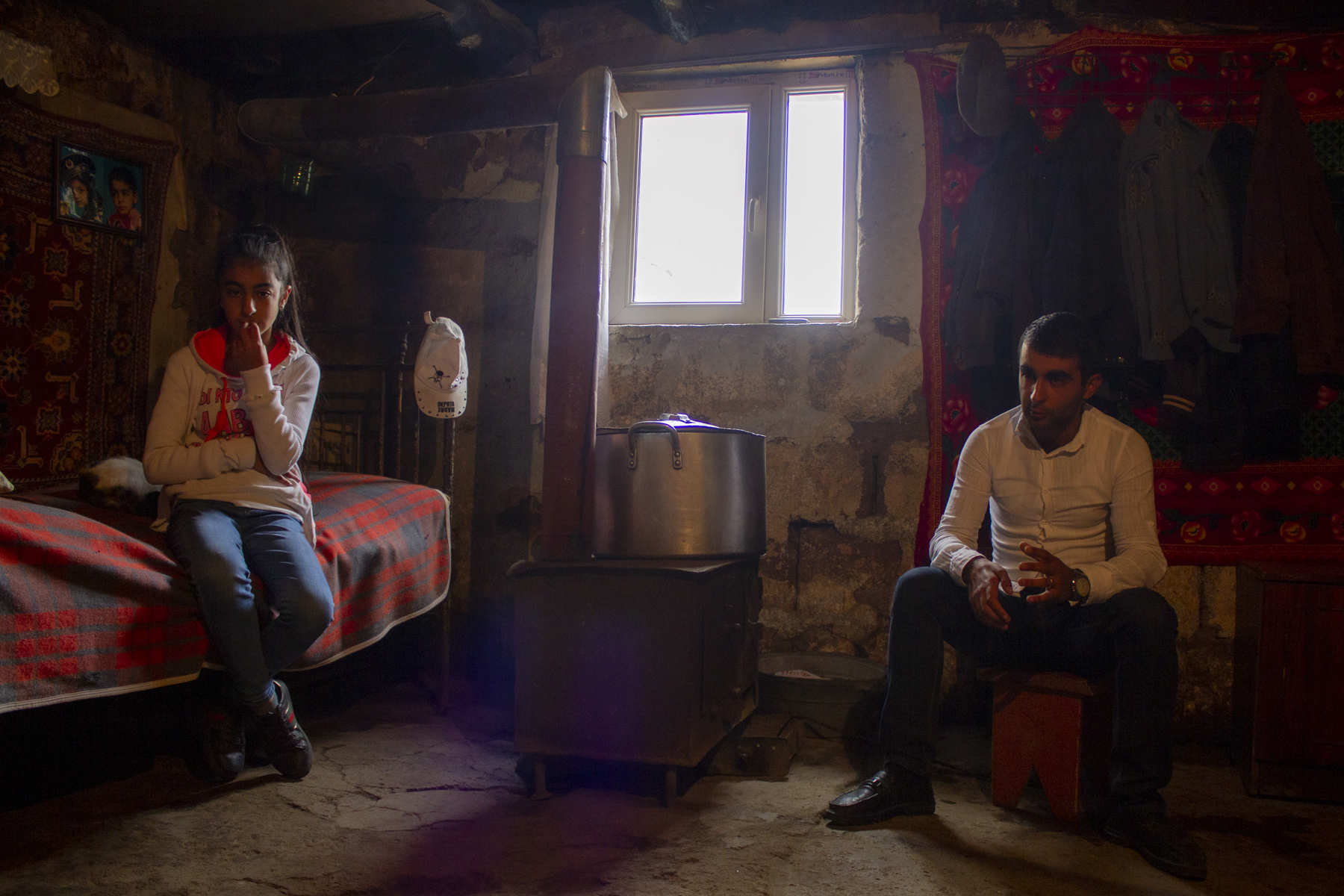
When asked about this, however, she just laughs and says that she simply ignores such talk. She dreams of getting a university education, and only wants to worry about marriage after.
Maya loves to watch TV, it is one of the few sources of entertainment in her life — and it has furnished her own personal vision of a better future. She was inspired by a film in which the protagonist becomes an IT specialist and earns so much money that they successfully bring their family out of poverty.
Now she too wants to study IT, though she sometimes fears it might not come true.
Even though her father promised her that she would graduate from school and that he would not make her marry until she had finished her education, she is afraid he might change his mind.
‘By doing that, he would ruin my life’, she said, adding the hopeful caveat that ‘he gave a man’s word’ and so will keep it. But despite her father’s promises, she knows the weight of expectation on her and her family.
‘If you do not marry until after 18, they say: “she will stay unmarried forever” ’, she lamented.
According to Armenian law, the youngest a person can be legally married is 18. If both parties in the marriage are minors, then with parental permission, the minimum age drops to 17. In a marriage between a minor and a legal adult, the minor must be at least 16 and also receive parental permission.
But when it comes to traditions, the law is often no obstacle.
